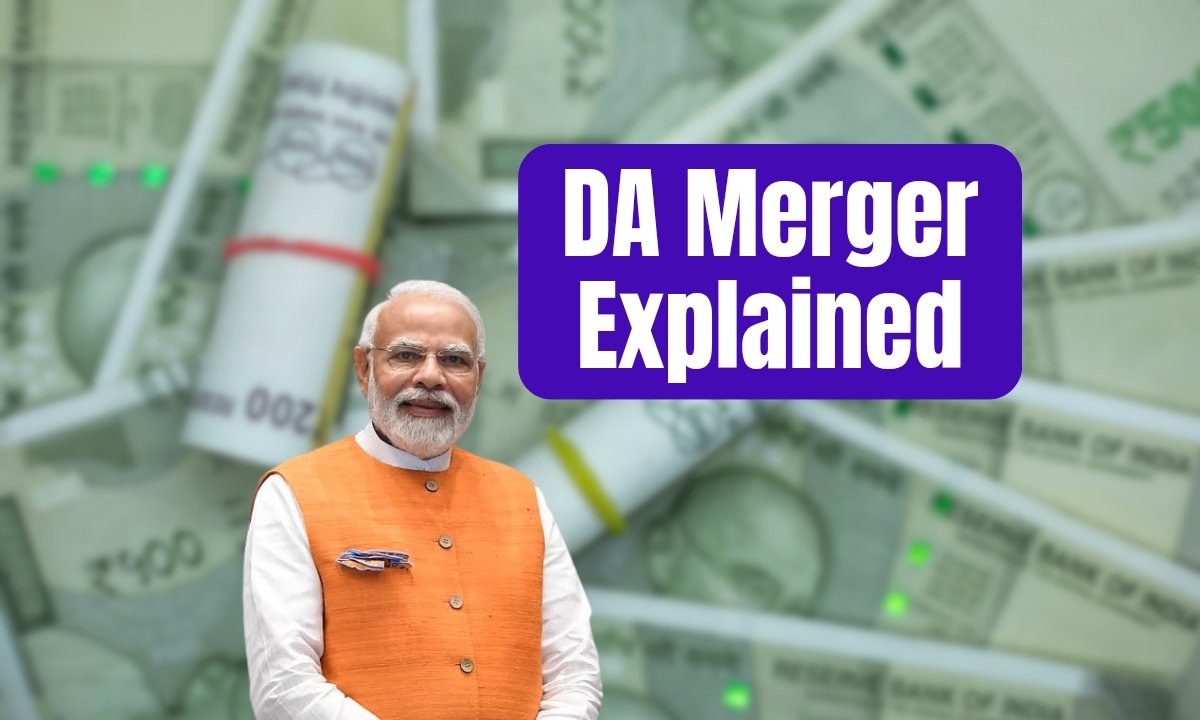Dearness Allowance is an essential component of the pay structure for government employees and pensioners in India to counteract inflation. Based on the Consumer Price Index or CPI, it adjusts salary so that the purchasing power of the employees remains intact. When the DA crosses a particular limit, generally 50%, a major reform called DA merger takes place, wherein the pay structure is altered to provide better financial security to the employees and pensioners.
What Is Dearness Allowance?
DA is an allowance added to the salary and pensions periodically to counterbalance the increasing cost of living due to inflation. It is revised twice a year, in January and July, said to be separate from basic pay but for ensuring that employees and pensioners maintain both real income in line with present economic conditions and so are taken care of.
What Is a DA Merger?
When the DA exceeds a certain percentage, generally 50, it is merged with the Basic Pay. It resets DA to nil but raises the Basic Pay, which becomes the new basis for calculation of allowances, pensions, and other benefits like provident fund and gratuity.
Why Merger of DA Matters
The merger of DA with basic pay considerably raises the financial prospects of employees. More specifically, it raises benefits on retirement such as pensions, gratuity, and provident fund, paving a way for a better post-retirement income. Hence, it furthers the concept of long-term financial security in support of employees in combating inflation that eats away at purchasing power.
Who Stands to Gain the Most?
DA merges mostly benefit the employees who are near retirement age and pensioners who suffer an increment of retirement benefits with recalculation of their basic pay. Younger employees are also beneficiaries as over a period of time it helps them accumulate greater savings with higher allowances, leading to financial stability at various stages of their career.
Challenges of DA Merger
One of the foremost challenges is that this increases the government financial liabilities, which require considerable budget formation and restructuring of the pay scale. Most of these complexities delay the implementation of such a DA merger bill fairly well till the time payment commission updates or any major economic reforms.
Also Read: UPI New Rules Effective August 1: Key Changes Every User Must Know
